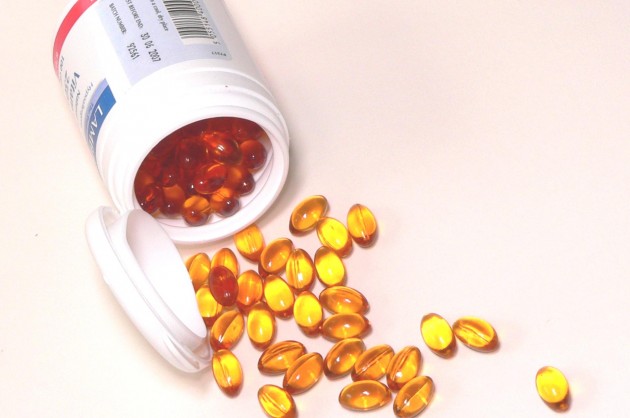
No one says DePauw has a prescription drug problem, but if there are unused prescription pills lying around DePauw Public Safety wants to make sure there is a way of disposing of them.
From 11 a.m. until 1:30 p.m. on Friday at the Union Building, Public Safety, which has teamed up with the Drug Enforcement Administration, is collecting unwanted or unused prescription medications as part of a program called "National Take Back IV."
The program is in its fourth year in Greencastle, but it's a first on DePauw's campus. The Greencastle Police Department has conducted the event for the past four years.
"The program is under a wider jurisdiction this year to make a bigger effort," said Doug Cox, Public Safety's coordinator of emergency management.
"We received the invite and why wouldn't we be involved."
People can anonymously bring their prescription drugs to a table set up in the Hub where Cox will be stationed to collect their prescription pills. Public Safety will oversee the event and the drugs throughout the day.
"There will be no log, no record of who brings what," Cox said. "There will be no identification of what the drugs are."
The pills will then travel to Indianapolis where they will be Covanta incinerated, which means they will leave no trace of contaminants. Disposing of the drugs in this manner makes sure that residue from the drugs doesn't resurface in the surrounding groundwater.
According to the DEA website, the DEA has collected and properly disposed of 995,185 pounds (498.5 tons) of prescription medication in the past 13 months.
DePauw's prescription drug collection comes a day before the national take back day on Saturday, April 28. Cox said Little 5 and the date being a Saturday factored into holding the event on Friday.
The City of Greencastle will hold an additional take back event on Saturday from 10 a.m. until 2 p.m. at Greencastle High School.
Cox wanted to hold DePauw's collection early to make disposal easier for faculty and staff, whom he said will likely be the largest group of participants in the program.
"I like the fact that it's anonymous." said junior Elyssa DiRaffaele. "Some may feel embarrassed for taking prescription pills for certain disabilities."
But there are other ways to anonymously dispose of prescription medications.
According to the FDA's website a person can, "Take them out of their original containers and mix them with an undesirable substance, such as used coffee grounds or kitty litter. The medication will be less appealing to children and pets, and unrecognizable to people who may intentionally go through your trash."
This is just one of many ways to avoid publicly disposing of medications.
"Yes, I think it's a good idea in concept, but I don't think it's realistic because students will take their medication elsewhere," said junior Stephen Kaminski.
Cox remains hopeful of the success of the program. He said there have been numerous inquiries about how to package drugs and which drugs can be disposed of.
"No one is really talking about what they are bringing," Cox said. "I think it speaks to the anonymity of the program."
